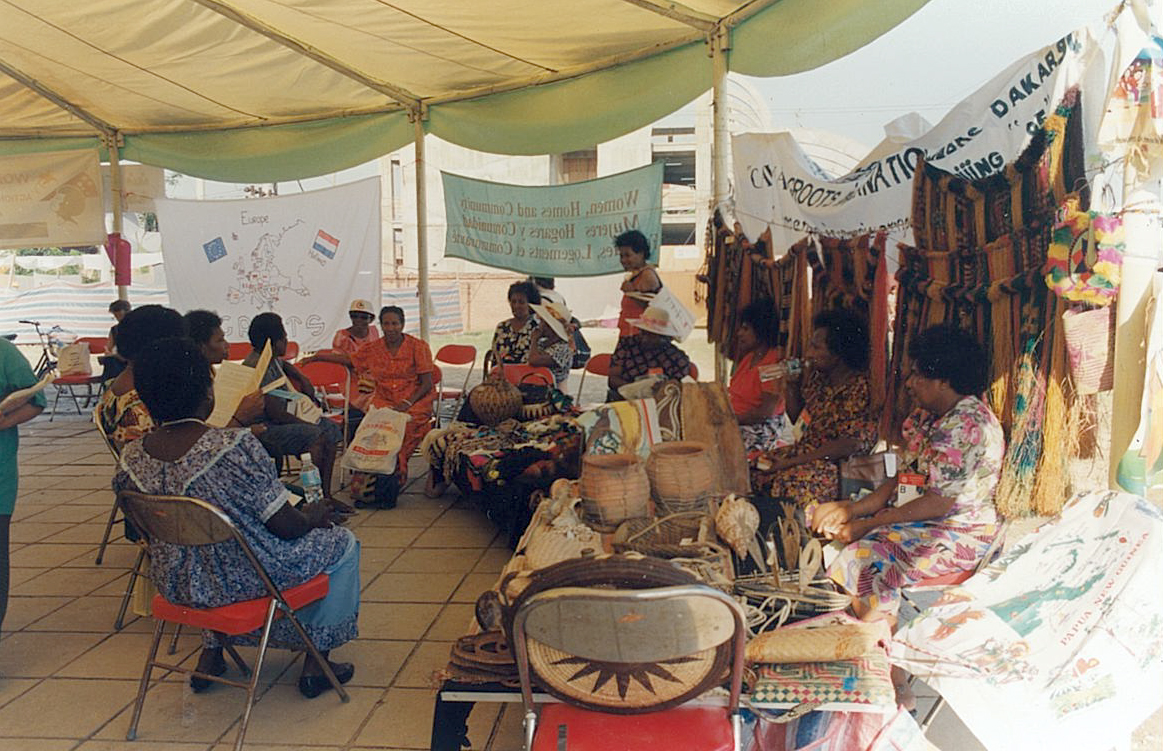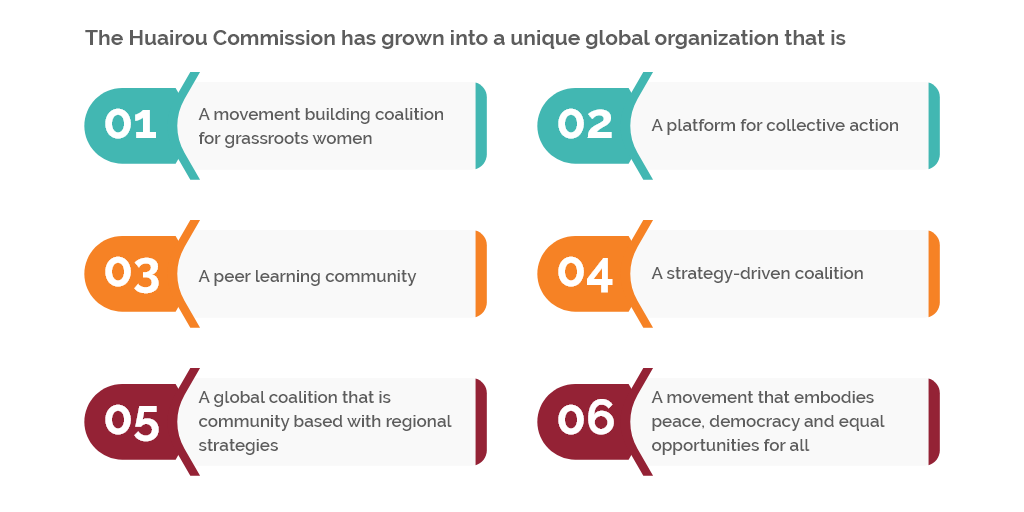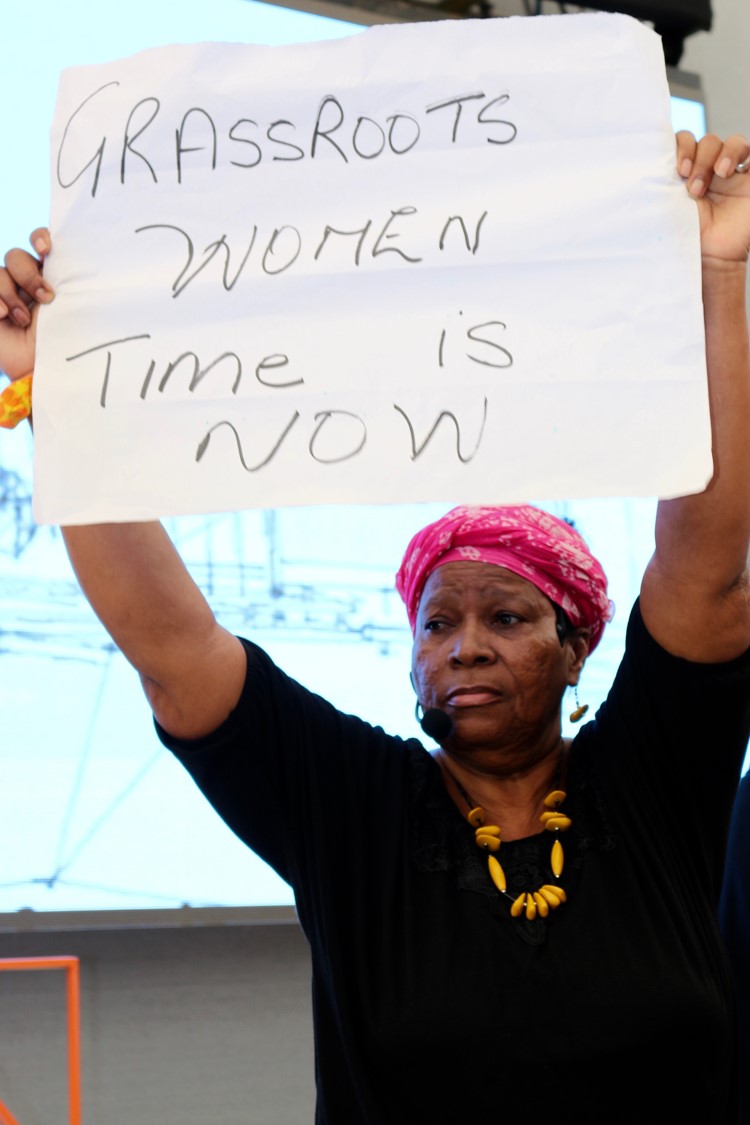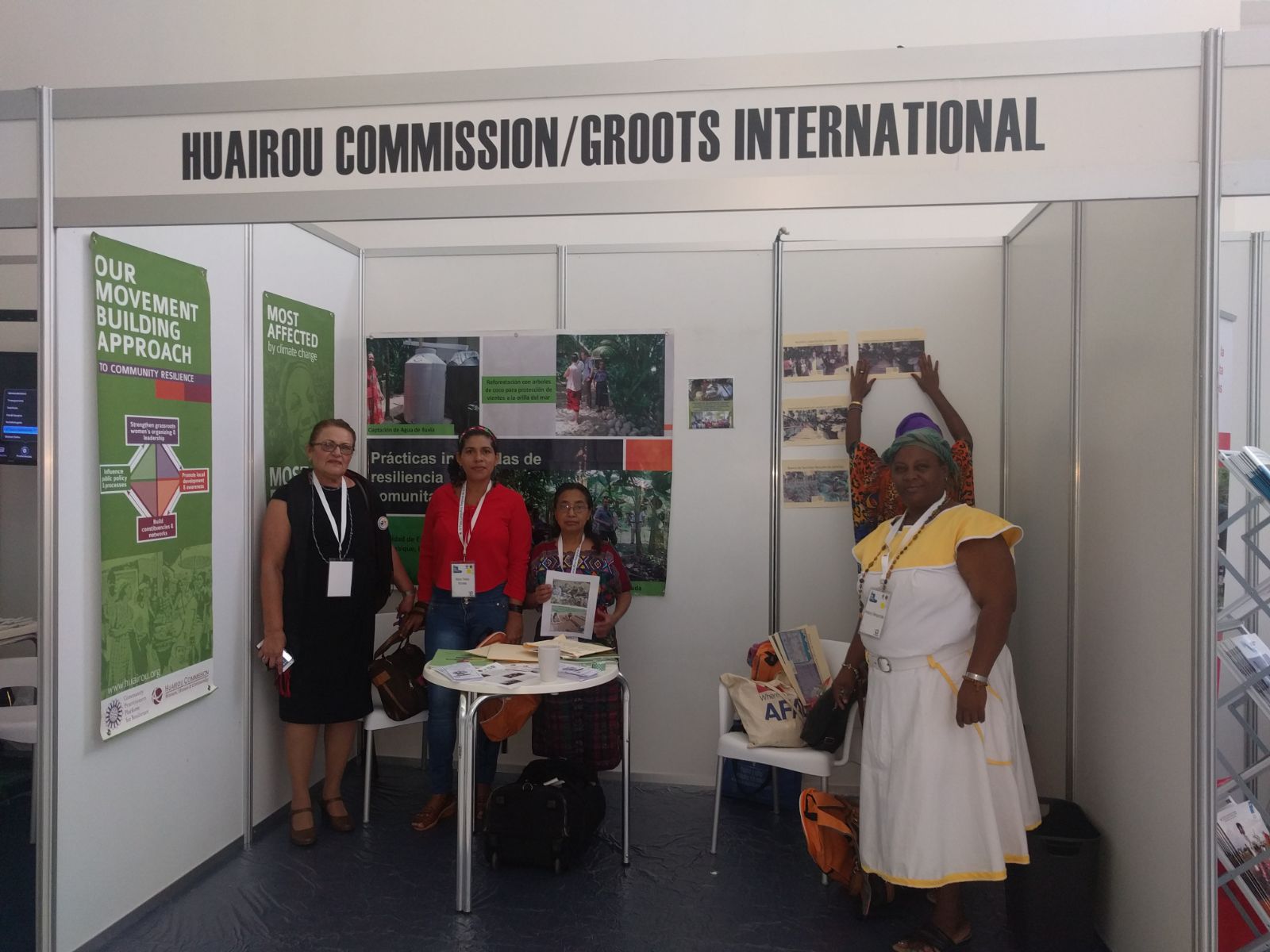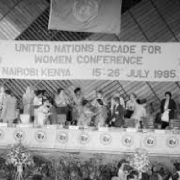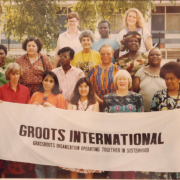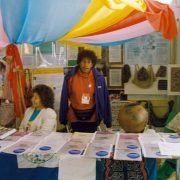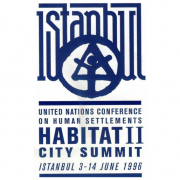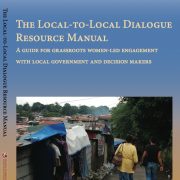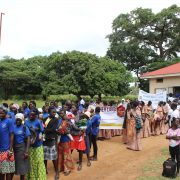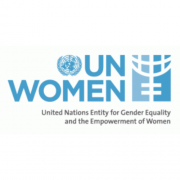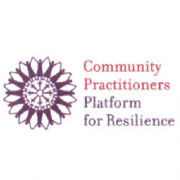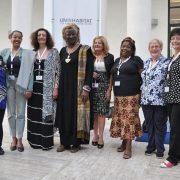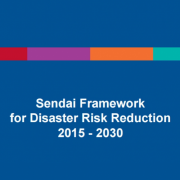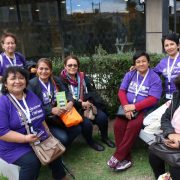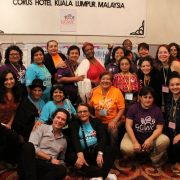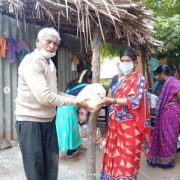For over 25 Years, We Champion Grassroots Women Around the World
In 1995, the Huairou Commission began in a tent for grassroots women leaders working relentlessly at the 4th World Women’s Conference in Beijing to advance their inclusion in global development processes joined together around a common goal.
At the outset of the Beijing Conference, GROOTS International – a global network of grassroots women organizations – and the USA based National Congress of Neighborhood Women came together to ensure that the issues facing grassroots women were finally addressed in the global women’s rights agenda. At the time, there was little space for civil society, especially the poor urban and rural women’s groups, to participate at the High Level Conference, and the grassroots women leaders organizing was especially underfunded. Without the representation of grassroots women, the daily issues confronting poor communities, such as access to food, livelihoods, water and sanitation, were not being prioritized.

